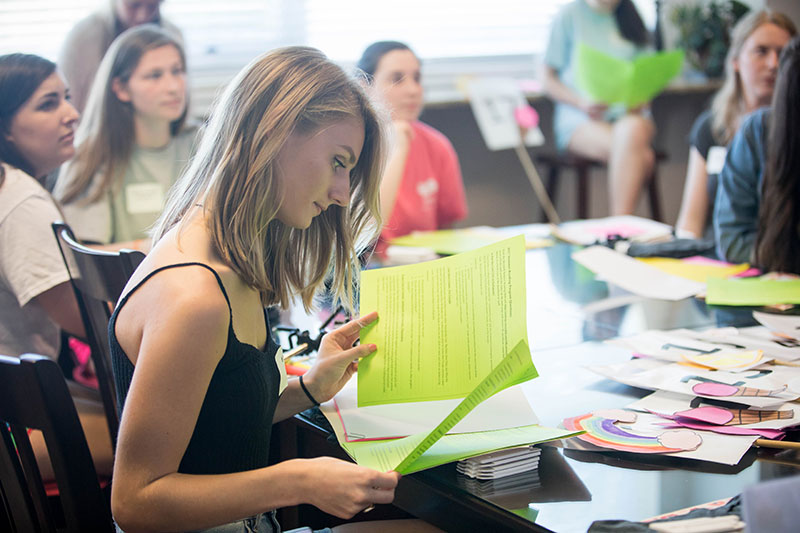
As a financial aid counselor, I do a lot of behind the scenes work with student information and data, but I stress to families that the most important part of my job is the counseling. I strongly believe that families need to be informed consumers during the college selection process. They need to fully understand how much college will cost and how they plan on paying for it.
“Student Loans” is a phrase that often makes families cringe upon hearing it. They have heard horror stories about their neighbors’ daughter’s boyfriend and how student loans ruined his life, and so they have no intention of taking loans, or letting their student take on any student loan debt to make college a reality.
While there are certainly people who have had issues and bad experiences with student loan debt, many of these situations are the result of uninformed borrowing and lack of financial aid counseling.
I often find myself sitting down with families and debunking many of the myths and rumors regarding student loans.
The first type of loans I discuss with families are direct subsidized and unsubsidized loans through the Department of Education. With these loans, no credit check or cosigner is needed and they are all but guaranteed to the student upon completion of the FAFSA and some additional forms. We discuss the fixed interest rate, the fact that payments are deferred until six months after the student has left school, the many options they will have with repayment, and the possibility of loan forgiveness. I speak very candidly with the family regarding my own personal student loan debt and the positive experience I have had while in repayment.
For many students and families, there may be a remaining balance after these loans have been considered, and they need to explore further financing options. If that is the case, I walk the family through additional programs that are available including Parent Loans, Private Student Loans, and payment plans. We discuss pros and cons of these different options and if I can, I try to give them an estimate of what a monthly payment might be on the loan.
I try to take the time to understand the family’s financial situation and encourage them to make the choice that is right for their family at that time. This may mean taking out a Parent PLUS Loan, or it may mean having the parent co-sign a private loan for the student. What works for you one year, might not work next year, and that is okay.
Learn more about federal loans versus private loans
If a family does decide to borrow money to help cover the expenses, I strongly encourage them to only borrow the amount that is absolutely required. For example, if a family has the ability to cover the cost of books, supplies, and other living expenses out of pocket, they should borrow just enough to cover what their remaining yearly balance will be after financial aid. This is where many students and families have to make the decision to borrow responsibly and only borrow what they need.
By the end of the conversation, my hope is that I have given the student and family enough information to make an informed and responsible decision. I often see a change in attitude in the families once they understand how college loans work and the pros and cons of them.
The reality is, higher education is an investment and loan debt is often a necessity for many students as it is the only avenue that they have to pay their bill. When students, families, and financial aid offices work together, students and families can be well educated on the available options for financing the cost of a higher education.
Sign up for our blog and get tips to help you write a strong college application essay. You’ll also receive valuable information every week to help you with your college search, including how to tell if a school is a good fit, how to pay for college, and more!
Share This Page
Office of Admissions
1st Floor, Johnson Hall
1-800-MEREDITH
(919) 760-8581
(919) 760-2348
admissions@meredith.edu
PRINCETON REVIEW
U.S. NEWS
NICHE
3800 Hillsborough Street Raleigh, NC 27607-5298 | (919) 760-8600 Fax: (919) 760-8330 | © 2024 All Rights Reserved.